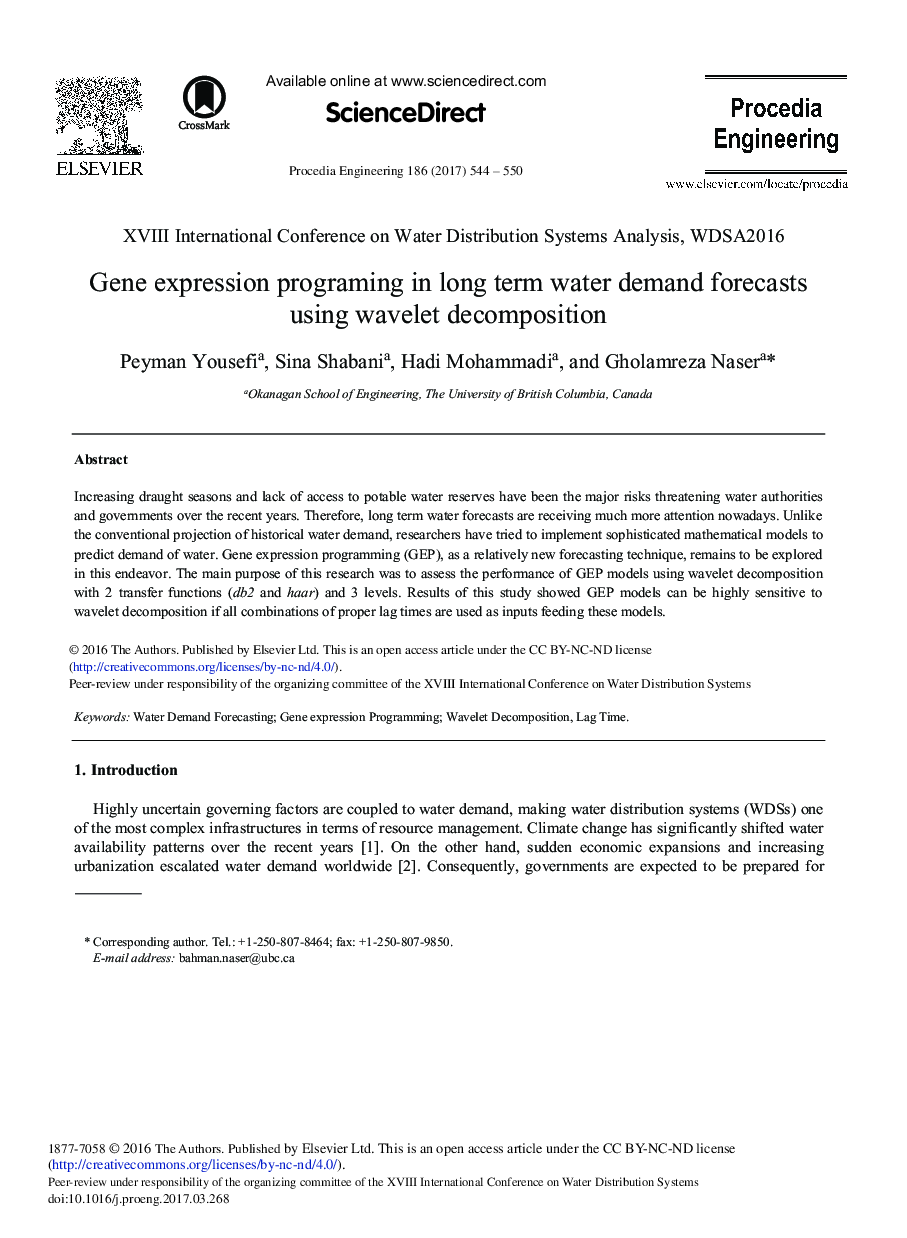| Article ID | Journal | Published Year | Pages | File Type |
|---|---|---|---|---|
| 5028252 | Procedia Engineering | 2017 | 7 Pages |
Abstract
Increasing draught seasons and lack of access to potable water reserves have been the major risks threatening water authorities and governments over the recent years. Therefore, long term water forecasts are receiving much more attention nowadays. Unlike the conventional projection of historical water demand, researchers have tried to implement sophisticated mathematical models to predict demand of water. Gene expression programming (GEP), as a relatively new forecasting technique, remains to be explored in this endeavor. The main purpose of this research was to assess the performance of GEP models using wavelet decomposition with 2 transfer functions (db2 and haar) and 3 levels. Results of this study showed GEP models can be highly sensitive to wavelet decomposition if all combinations of proper lag times are used as inputs feeding these models.
Related Topics
Physical Sciences and Engineering
Engineering
Engineering (General)
Authors
Peyman Yousefi, Sina Shabani, Hadi Mohammadi, Gholamreza Naser,
